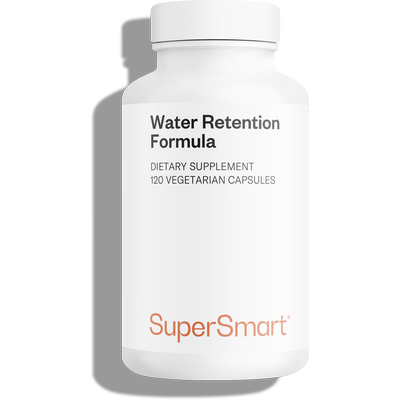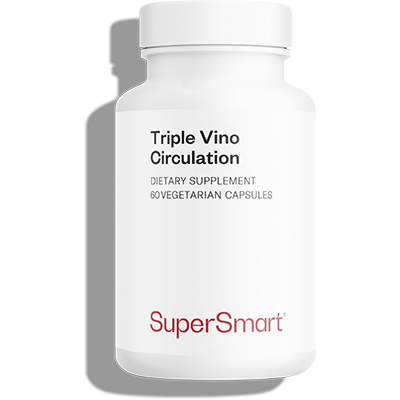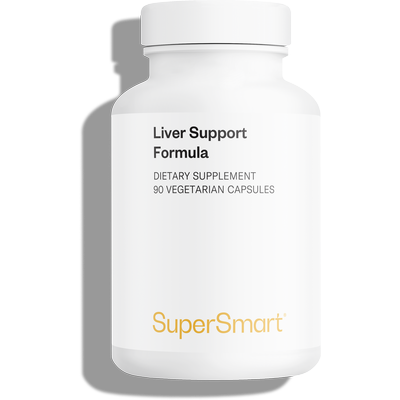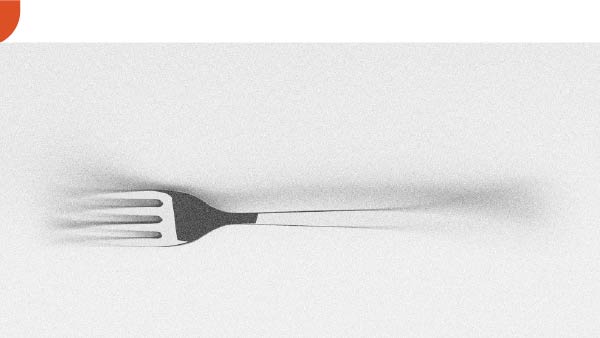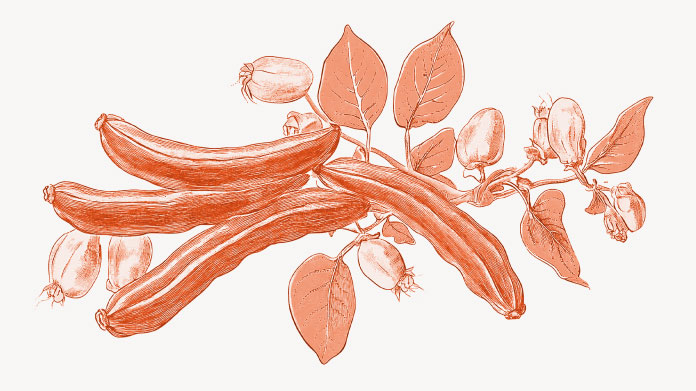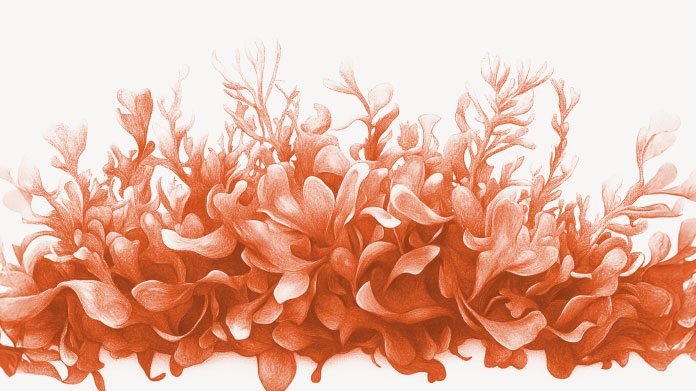Which supplement should you take for water retention?
The feeling of heavy legs, sudden weight gain … When fluid elimination is no longer happening as a matter of course, your body might be in need of a boost. What’s the best supplement for helping to combat water retention?

What exactly is water retention?
Water retention refers to an abnormal build-up of fluid in the body’s tissues: instead of being reabsorbed by capillaries, excess fluid accumulates and stagnates in the extracellular milieu surrounding cells.
This results in swelling or oedema, which tends to mainly affect the lower limbs (ankles, feet …), but sometimes the stomach and face (1). Skin discolouration, numbness, a feeling of localised heat, and even sudden weight gain (several kilos within 24 hours) may also occur.
Water retention can have both contextual causes (prolonged standing or sitting, hot weather, pregnancy, menopause, a high-salt diet, taking the contraceptive pill or certain medications…) and pathological ones (primarily heart, kidney, lung or thyroid disorders) (2-4).
Water retention: how to get rid of it fast
In the first instance, a number of simple lifestyle measures can help to prevent and alleviate water retention :
- increase your daily physical activity to boost blood and lymphatic circulation, focusing on low impact forms of exercise to avoid weakening venous valves: walking, cycling, aqua biking … ;
- avoid wearing too-tight clothes or high heeled shoes, crossing your legs, or staying in the same position for several hours;
- eat a varied, balanced diet taking care to reduce your salt intake, stay well-hydrated and consume sufficient protein (5);
- restrict your exposure to intense heat which exacerbates blood vessel dilation: hot baths, hot waxing, saunas, hammams … ;
- consider lymphatic drainage with a physiotherapist to unblock the lymphatic system and facilitate the resorption of oedema (but only on medical advice) (6).
Let’s now take a look at the most effective plants for reducing water retention before we reveal the n°1 supplement for combatting this problem.
Various plant-based supplements effective against water retention
Barbary fig, a slimming superfruit
Also known as prickly pear, Barbary fig (Opuntia ficus indica) is a cactus native to central and tropical America.
Rich in phenols, flavonoids, betaxanthins and betacyanins, its fleshy fruit supports weight control through a diuretic action, whilst maintaining electrolyte balance by providing calcium, potassium and magnesium (7).
Meadowsweet, for supporting elimination functions
A plant from the Rosaceae family, meadowsweet (Filipendula ulmaria) has earned a reputation as a ‘natural aspirin’ since salicylic acid derivatives were isolated from its flowering tops.
What’s less well-known is that it was traditionally used to facilitate the body’s elimination and draining functions - properties almost certainly attributable to its range of phenolic compounds, flavonoids (heterosides of quercitol and kaempferol) and tannins (gallotannins, rugosin D) (8).
Artichoke, a plant with draining qualities good for reducing water retention
While its edible flower buds are packed with vitamins and minerals, it’s the artichoke’s leaves which are used in herbal medicine to support weight loss (9).
They contain inulin and potassium with draining properties, which explains why they often feature in programmes to reduce water retention. At the same time, they support the health of the liver, a key emunctory organ of the lymphatic system (the supplement Liver Support Formula, aimed specifically at liver health, combines artichoke with milk thistle, chlorella and other exceptional natural extracts) (10).
Dandelion, to facilitate elimination of fluid via the kidneys
Part of the same family as pilosella, with which it shares the same yellow flowerheads, dandelion (or more specifically its leaves) helps to drain the body of excess fluid by supporting the kidneys’ excretory function and renal elimination of water (11).
This effect is due to the plant’s combination of flavonoids and potassium salts.
Guarana, to get back in shape
Popular for its invigorating properties and ability to support mental performance, guarana (Paullinia cupana) also promotes weight loss (12).
Native to northern Brazil, this slimming plant bears fruit seeds that contain up to 7% caffeine (compared with just 3% for coffee), the main reason for its effects on diuresis (urine excretion). With a wide range of catechin tannins, it also acts as a natural antioxidant.
Fennel seed, star of detox herbal teas
Known mainly for its digestive properties which come from its high content of anethole, fennel seed (Foeniculum vulgare) stimulates renal and urinary elimination (14).
It’s therefore of interest for combatting excess fluid in tissues. Fennel root also has powerful draining qualities.
Red vine, to improve tone of the venous network
And for lighter-feeling legs, red vine (Vitis vinifera var. tinctoria), with its combination of anthocyanosides, polyphenols and flavonoids, supports healthy circulation by making blood capillaries less permeable, reducing cellulite and aiding weight control (15).
It is particularly suitable when water retention is accompanied by poorly-functioning veins and the feeling of heavy legs (its qualities are used to full effect in the protective supplement Triple Vino Circulation).
What is the best supplement for combatting water retention?
An effective anti-water retention supplement would logically contain all the above-mentioned plant extracts.
Which is precisely the case with the synergistic formulation Water Retention Formula which, in a single capsule, combines two patented ingredients: Cacti-Nea®, a Barbary fig extract standardised in betalains and indicaxanthins, and Elim’real®, a specific, natural ‘elimination’ complex made from meadowsweet, caraway, guarana, goldenrod, fennel and dandelion (16).
Just what you need to feel lighter on your feet!
SUPERSMART ADVICE
References
- Lent-Schochet D, Jialal I. Physiology, Edema. [Updated 2023 May 1]. In: StatPearls [Internet]. Treasure Island (FL): StatPearls Publishing; 2024 Jan-. Available from: https://www.ncbi.nlm.nih.gov/books/NBK537065/
- Stachenfeld NS. Hormonal changes during menopause and the impact on fluid regulation. Reprod Sci. 2014;21(5):555-561. doi:10.1177/1933719113518992
- Martin PY, Schrier RW. Sodium and water retention in heart failure: pathogenesis and treatment. Kidney Int Suppl. 1997 Jun;59:S57-61. PMID: 9185106.
- Mottelson MN, Lundsgaard CC, Møller S. Mechanisms in fluid retention - towards a mutual concept. Clin Physiol Funct Imaging. 2020 Mar;40(2):67-75. doi: 10.1111/cpf.12615. Epub 2019 Dec 26. PMID: 31823451.
- Rakova N, Kitada K, Lerchl K, et al. Increased salt consumption induces body water conservation and decreases fluid intake. J Clin Invest. 2017;127(5):1932-1943. doi:10.1172/JCI88530
- Thompson B, Gaitatzis K, Janse de Jonge X, Blackwell R, Koelmeyer LA. Manual lymphatic drainage treatment for lymphedema: a systematic review of the literature. J Cancer Surviv. 2021 Apr;15(2):244-258. doi: 10.1007/s11764-020-00928-1. Epub 2020 Aug 15. PMID: 32803533.
- El-Mostafa K, El Kharrassi Y, Badreddine A, Andreoletti P, Vamecq J, El Kebbaj MS, Latruffe N, Lizard G, Nasser B, Cherkaoui-Malki M. Nopal cactus (Opuntia ficus-indica) as a source of bioactive compounds for nutrition, health and disease. Molecules. 2014 Sep 17;19(9):14879-901. doi: 10.3390/molecules190914879. PMID: 25232708; PMCID: PMC6270776.
- Bijttebier S, Van der Auwera A, Voorspoels S, Noten B, Hermans N, Pieters L, Apers S. A First Step in the Quest for the Active Constituents in Filipendula ulmaria (Meadowsweet): Comprehensive Phytochemical Identification by Liquid Chromatography Coupled to Quadrupole-Orbitrap Mass Spectrometry. Planta Med. 2016 Apr;82(6):559-72. doi: 10.1055/s-0042-101943. Epub 2016 Feb 4. PMID: 26845709.
- Rondanelli M, Riva A, Petrangolini G, Allegrini P, Bernardinelli L, Fazia T, Peroni G, Gasparri C, Nichetti M, Faliva MA, Naso M, Perna S. The Metabolic Effects of Cynara Supplementation in Overweight and Obese Class I Subjects with Newly Detected Impaired Fasting Glycemia: A Double-Blind, Placebo-Controlled, Randomized Clinical Trial. Nutrients. 2020 Oct 28;12(11):3298. doi: 10.3390/nu12113298. PMID: 33126534; PMCID: PMC7693737.
- Moradi S, Shokri-Mashhadi N, Saraf-Bank S, Mohammadi H, Zobeiri M, Clark CCT, Rouhani MH. The effects of Cynara scolymus L. supplementation on liver enzymes: A systematic review and meta-analysis. Int J Clin Pract. 2021 Nov;75(11):e14726. doi: 10.1111/ijcp.14726. Epub 2021 Aug 23. PMID: 34383355.
- Clare BA, Conroy RS, Spelman K. The diuretic effect in human subjects of an extract of Taraxacum officinale folium over a single day. J Altern Complement Med. 2009 Aug;15(8):929-34. doi: 10.1089/acm.2008.0152. PMID: 19678785; PMCID: PMC3155102.
- Lima NDS, Teixeira L, Gambero A, Ribeiro ML. Guarana (Paullinia cupana) Stimulates Mitochondrial Biogenesis in Mice Fed High-Fat Diet. Nutrients. 2018 Jan 31;10(2):165. doi: 10.3390/nu10020165. PMID: 29385074; PMCID: PMC5852741.
- Torres EAFS, Pinaffi-Langley ACDC, Figueira MS, Cordeiro KS, Negrão LD, Soares MJ, da Silva CP, Alfino MCZ, Sampaio GR, de Camargo AC. Effects of the consumption of guarana on human health: A narrative review. Compr Rev Food Sci Food Saf. 2022 Jan;21(1):272-295. doi: 10.1111/1541-4337.12862. Epub 2021 Nov 9. PMID: 34755935.
- Sadrefozalayi S, Farokhi F. Effect of the aqueous extract of Foeniculum vulgare (fennel) on the kidney in experimental PCOS female rats. Avicenna J Phytomed. 2014 Mar;4(2):110-7. PMID: 25050308; PMCID: PMC4103710.
- Foshati S, Nouripour F, Sadeghi E, Amani R. The effect of grape (Vitis vinifera) seed extract supplementation on flow-mediated dilation, blood pressure, and heart rate: A systematic review and meta-analysis of controlled trials with duration- and dose-response analysis. Pharmacol Res. 2022 Jan;175:105905. doi: 10.1016/j.phrs.2021.105905. Epub 2021 Nov 17. PMID: 34798267.
- Bisson JF, Daubié S, Hidalgo S, Guillemet D, Linarés E. Diuretic and antioxidant effects of Cacti-Nea, a dehydrated water extract from prickly pear fruit, in rats. Phytother Res. 2010 Apr;24(4):587-94. doi: 10.1002/ptr.2996. PMID: 19777503.
3 Hours
Just OK
Just OK, ordering from company for many years and being safisfied
Lynn Mae
16 Hours
Recomendo
Produtos encomendados são recebidos atempadamente e de acordo com o anunciado! Muito satisfeita!
Carla Sofia
1 Days
Everything is great!
Everything is great!
Jonas
6 Days
The delivery was fast and the product…
The delivery was fast and the product is great
SOMMARIVA Gianni
7 Days
Great service and lots of information
Great service and lots of information
Gabi
10 Days
Service Satisfaction
I’m satisfied with the service; it fulfilled what it set out to do.
Anfhony Abreu
13 Days
Original product and fast delivery
Original product and fast delivery. I haven't started it yet, but will do soon.
Vincenza Catania
15 Days
Good quality
Good quality. Good service.
Leonel Guzman
18 Days
Top!!!!!!!!
Top!!!!!!!!
Michael
20 Days
Excellent!
Products are great and delivered fast!
PARDINI Debora
20 Days
From order to receive the product
From order to receive the product, the process is smooth & fast. It’s good to customers.
WONG Mei Ling
21 Days
Fast delivery
very quick delivery to italy. product is good.
Customer
22 Days
Prompt delivry !!👍
Prompt delivry !!👍
SWEET Christine
23 Days
Good delivery and flawless quality
AS far as delivery and the visual quality are concerned, Supersmart is excellent. I will not comment on the efficacy of the products themselves, since that is only possible over a longer period and in a large customer base compared to people who do not consume a particular product.
Roger De Backer
24 Days
Perfect services
Perfect services, perfect support, great articles about products
Michaela Alali Beitlová
of experience
your money back
##montant## purchase


